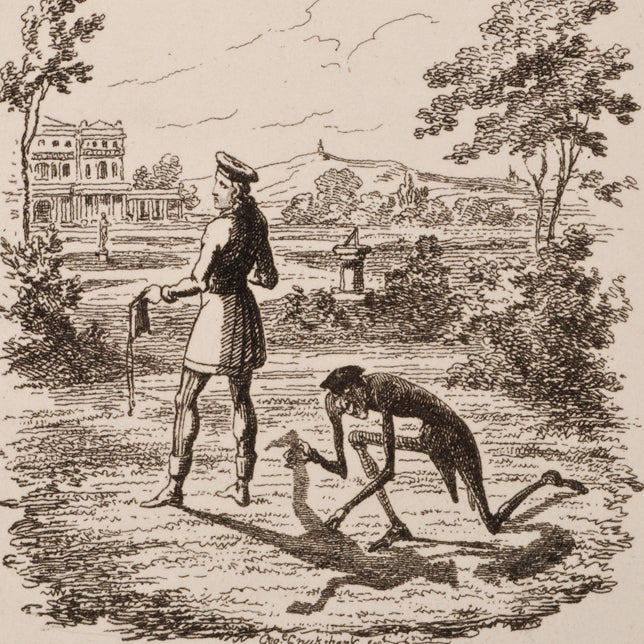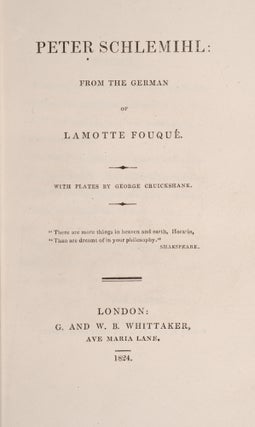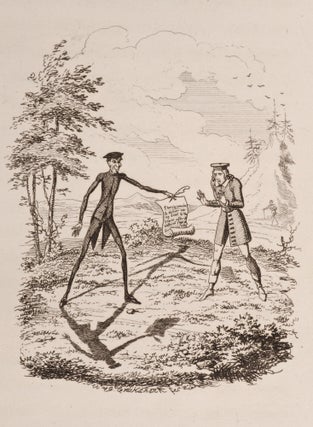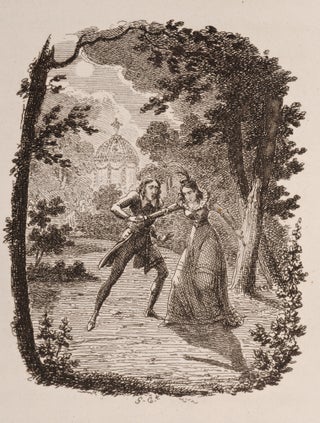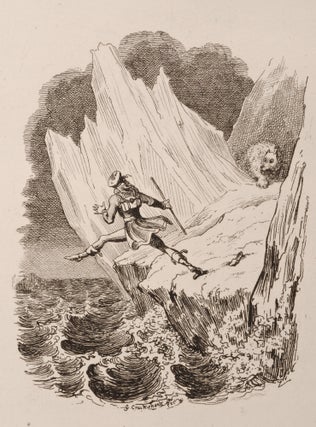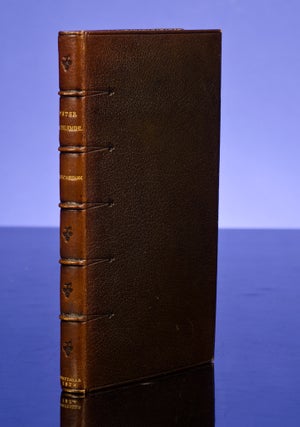Peter Schlemihl
London: G.& W.B. Whittaker, 1824. Item #02573
Don't Fouqué With George
[CRUIKSHANK, George, illustrator]. LAMOTTE-FOUQUÉ, Friederich Heinrich Karl, Baron de. Peter Schlemihl. From the German of Lamotte Fouqué. With Plates by George Cruikshank. London: G.& W.B. Whittaker, 1824.
First edition in English, third issue with no hyphen between "Ave" and 'Maria" in publisher's imprint. Octavo (7 1/4 x 4 1/4 in; 184 x 106 mm). xii, 165, [1, blank], [2, adv. ] pp. Half-title and eight engraved plates.
Bound by Rivière & Son in late nineteenth century full crushed olive morocco. Five raised bands. Compartments with blindstamped ornament. Blindstamped false sewing supports. Gilt-rolled board edges. Gilt dentelles. Top edge gilt. Original printed spine label mounted to rear blank. Spine a little sunned to warm brown, still a fine copy.
Friedrich Heinrich Karl, Baron de LaMotte-Fouqué (1777-1843) was a German writer of the romantic school. Robert Louis Stevenson admired Fouqué's story The Bottle Imp and wrote his own version (The Bottle Imp) with a Hawaiian setting. John Henry Newman and Charlotte Mary Yonge both praised Sintram and his Companions. William Morris also became an admirer of Sintram and his Companions, and it influenced Morris' own fiction. Sintram and his Companions and Undine are referred by Louisa May Alcott in Little Women; Jo March mentions wanting them for Christmas in the first chapter of the book and finally receives them in chapter 22. Furthermore, Aslauga's Knight, as well as Sintram and his Companions and Undine are referred to in Jo's Boys, the final book in Alcott's Little Women series, where Aslauga's Knight mirrors the character Dan and his affection for gentle Bess.
Cohn 475.
Price: $950.00

 I have been in the rare and antiquarian book business for over forty years; my family has been in the rare books business since 1876. Rare books are in my blood.
I have been in the rare and antiquarian book business for over forty years; my family has been in the rare books business since 1876. Rare books are in my blood.
